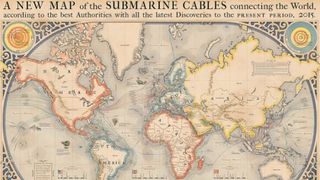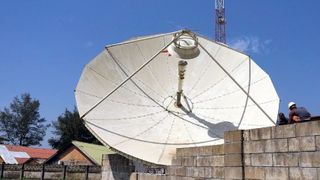Google got it wrong: The internet won't be global by 2020
After two decades of stratospheric growth, is the internet at saturation point already?
Why internet access is important
The internet is more important than medicine, sleep and clothing. According to Peer 1's Human Potential of the internet Study, countries with low levels of access to the internet – including many nations in Africa, Asia and the Middle East – were far more likely to agree that the internet improves quality, access to information, education, politics and even that internet access is necessary to their survival.

The study of 20,600 internet users across 25 countries found that people in developing countries think the internet is a force for social good, economic change, and education. "Nations with less internet access realise the potential of the internet even more so than places with high access," says Sheila Bouman, Executive Vice president and Managing Director, Peer 1 Hosting.
"Connectivity is not a luxury for the rich – rather, it is the most powerful tool mankind has ever had at its disposal to bridge development gaps in areas like health, education, environmental management and gender empowerment," says ITU Secretary-General Dr Hamadoun I. Touré, though there's a gender divide, too. 16% fewer women than men used the internet in developing countries, compared with only 2% fewer women than men in the developed world, according to the ITU.
"Broadband uptake is accelerating, but it is unacceptable that 90% of people in the world's 48 least-developed countries remain totally unconnected," adds Touré.

Lack of infrastructure
The lack of internet access is the story of world poverty. Of the 940 million people living in the least developed countries, only 89 million use the internet, corresponding to a 9.5% penetration rate according to the ITU.
"Some of the world's poorest areas are also those most underserved by submarine cable landings, most notably the east and west coasts of Africa," says Liam Fisher, Creative Marketing Lead at Builtvisible. "It's easy to think of fast web access as something of a luxury, but the truth is that it can have transformative powers on developing communities, especially when you think of it in terms of access to education, and better communications during disasters."
Satellite internet access will also be crucial if the off-grid world is to get online – third-generation multi-beam Ka-band satellites should be online by 2020, which will double the maximum speed to 100Mbps, and allow a far higher capacity.
Are you a pro? Subscribe to our newsletter
Sign up to the TechRadar Pro newsletter to get all the top news, opinion, features and guidance your business needs to succeed!
We already know that 25 billion 'things' will be online by 2020, but what about people? Eric Schmidt wasn't just wrong when he said that the entire world would be connected by 2020. He wasn't even close.
Jamie is a freelance tech, travel and space journalist based in the UK. He’s been writing regularly for Techradar since it was launched in 2008 and also writes regularly for Forbes, The Telegraph, the South China Morning Post, Sky & Telescope and the Sky At Night magazine as well as other Future titles T3, Digital Camera World, All About Space and Space.com. He also edits two of his own websites, TravGear.com and WhenIsTheNextEclipse.com that reflect his obsession with travel gear and solar eclipse travel. He is the author of A Stargazing Program For Beginners (Springer, 2015),

